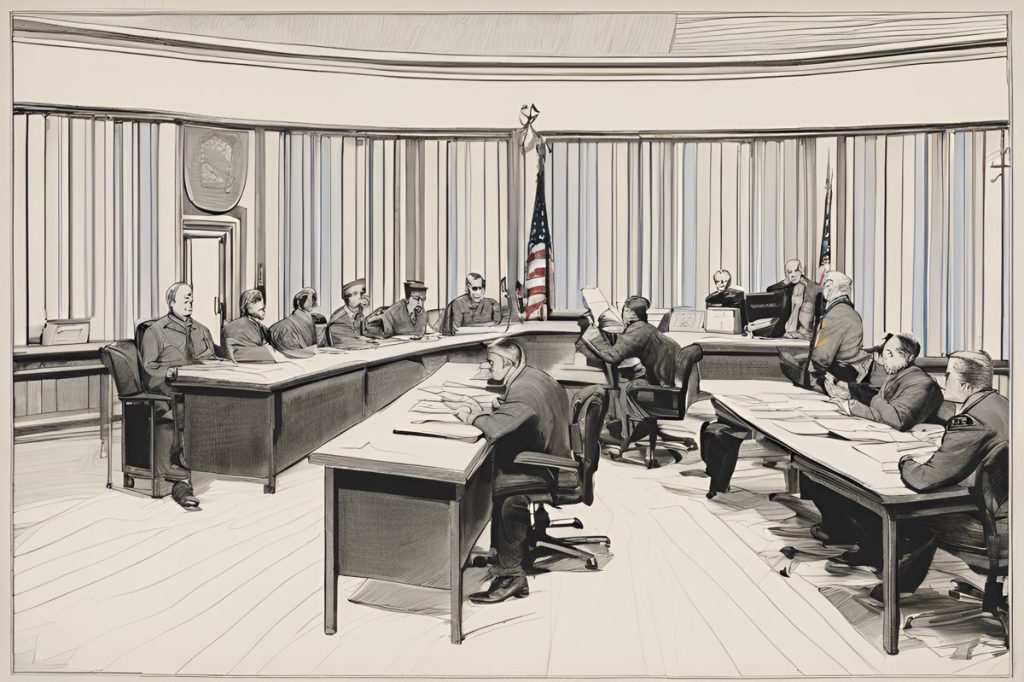The Audit Service report highlights concerns about the National Guard’s deferment process, citing gaps in procedures and inconsistencies in record-keeping. The need for transparent and accountable record-keeping is emphasized to maintain the integrity of the national service system.
What are the concerns highlighted in the Audit Service report about the National Guard’s deferment process?
The Audit Service report identifies significant concerns with the National Guard’s deferment process, including gaps in procedures, inconsistencies in record-keeping, and absence of formal deferment registers. The report emphasizes the need for transparent and accountable record-keeping to maintain the integrity of the national service system.
Audit Service Report Highlights Deferment Gaps
The Audit service recently spotlighted significant concerns regarding the deferment process for conscription into the National Guard. In their revealing report, they outlined apparent “gaps” in the procedures for granting such deferments. Notably, the Audit service stressed that several approved deferments were mysteriously absent from the official lists provided by the National Guard.
The report went on to detail that the lists showed inconsistencies, including deferments that did not actually grant delay and the inclusion of outdated cases not relevant to the requested period. This led the Audit service to question the reliability of the National Guard’s record-keeping methods.
Record-Keeping Practices Under Scrutiny
A key finding of the report is the lack of a formal register for deferments, highlighting a practice that relies on draft letters saved on individual officers’ computers. The Audit service has strongly recommended the establishment of a comprehensive register. This proposed system would track all deferment details, durations, and the applicable laws for each case.
Such a register would undoubtedly enhance transparency and accountability in the deferment process. In recent years, hundreds of applications for deferment have been submitted annually, with approximately a third being approved each year. These deferments are often granted for reasons such as ongoing secondary education, including enrollment in academies abroad, which has been a point of contention regarding their recognition as legitimate educational institutions.
National Guard and Deferment Policy
The National Guard’s approach to deferments has been criticized by the Audit service, which suggests that the government has demonstrated too much leniency. This leniency is believed to be without consequence for those who do not comply with mandatory conscription, potentially undermining the integrity of the national service system.
In response, the National Guard has acknowledged the need for better record-keeping and has mentioned plans to develop an electronic application that would accurately record all deferments and exemptions. This digital application is seen as a step toward modernizing the process and ensuring all information is up-to-date and easily accessible.
Future Steps for Improving Conscription Accountability
The National Guard has already begun to address some of the issues raised by the Audit service. By planning the creation of an electronic application, the Guard aims to improve the management of deferments and exemptions. Such technological advancements are essential for ensuring that all eligible young men serve their country as required, except in cases where deferment is legally and justifiably granted.
The implementation of stricter controls and more consistent documentation would serve to uphold the integrity of the National Guard. It would also reinforce the importance of national service, ensuring that all citizens contribute equitably to the defense and well-being of the nation. This move towards a more robust and transparent system reflects a commitment to upholding the law and maintaining the trust of the citizens.
What are the concerns highlighted in the Audit Service report about the National Guard’s deferment process?
The Audit Service report identifies significant concerns with the National Guard’s deferment process, including gaps in procedures, inconsistencies in record-keeping, and absence of formal deferment registers. The report emphasizes the need for transparent and accountable record-keeping to maintain the integrity of the national service system.
What practices related to record-keeping were under scrutiny in the Audit Service report?
The report highlighted the lack of a formal register for deferments, with the process relying on draft letters saved on individual officers’ computers. The Audit service recommended the establishment of a comprehensive register to track all deferment details, durations, and applicable laws for each case.
How has the National Guard responded to the concerns raised in the Audit Service report?
The National Guard has acknowledged the need for better record-keeping practices and has mentioned plans to develop an electronic application to accurately record all deferments and exemptions. This digital application is seen as a step towards modernizing the process and ensuring all information is up-to-date and easily accessible.
What steps are being taken to improve conscription accountability in the future?
The National Guard is working towards implementing stricter controls and more consistent documentation to uphold the integrity of the National Guard and reinforce the importance of national service. By developing an electronic application and improving management processes, the Guard aims to ensure that all eligible individuals serve their country as required, except in cases where deferment is legally and justifiably granted.

